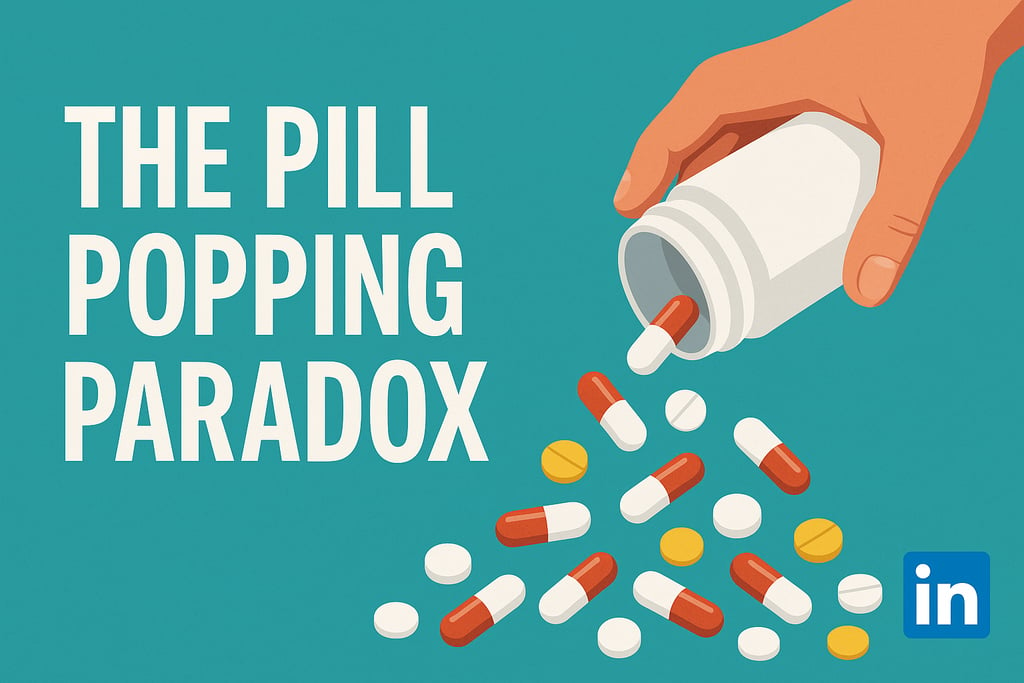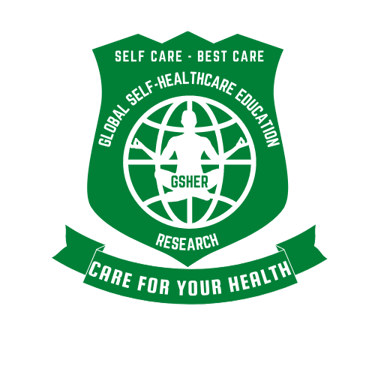The Pill Popping Paradox: Why We Ignore Our Health Until It’s Too Late
The Modern Health Dilemma: Disinterest Now, Desperation Later
DR Biswajit Mohapatra
4/19/20252 min read


We live in an era of instant gratification—fast food, quick fixes, and magic bullet solutions. When it comes to health, most of us follow the same pattern:
Ignore the body until pain screams for attention.
Neglect the mind until anxiety or depression becomes unbearable.
Demand a pill to erase the problem without changing anything else.
We want shortcuts. A one-size-fits-all cure. A prescription to silence symptoms without addressing the root cause. And sadly, modern healthcare often enables this mindset. Doctors, pressed for time, prescribe pills instead of lifestyle changes, which is not in their purview. Alternative healers offer miracle remedies without accountability. The message is the same across all modalities: "Take this, and you won’t have to change a thing."
But health doesn’t work that way.
The Illusion of Quick Fixes
1. The Prescription Trap
Problem: High blood pressure? Take a beta-blocker. Can’t sleep? Here’s a sedative. Depressed? An SSRI will help.
Reality: Medications manage symptoms but rarely heal. Many chronic diseases (diabetes, hypertension, depression) are lifestyle-driven, yet patients pop pills while continuing the same habits that made them sick.
2. The "Natural" Shortcut Myth
Problem: Rejecting pharmaceuticals but falling for "magic" supplements, detox teas, or expensive IV therapies promising effortless healing.
Reality: No herb, injection, or superfood can undo chronic stress, poor sleep, or emotional repression. True healing requires effort.
3. The One-size-fits-all Fallacy
Problem: Every healer—whether an allopathic doctor, ayurvedic practitioner, or functional medicine guru—applies their standard protocol to everyone.
Reality: Bodies are unique. Trauma histories differ. What works for one person may harm another. Cookie-cutter solutions fail because people aren’t machines.
Why Do We Avoid Real Work?
1. It’s Harder— Changing diet, facing emotions, and committing to exercise require discipline. Pills feel easier.
2. We Don’t Believe Prevention Matters—Until a crisis hits, health feels optional.
3. We Trust Authority Over Ourselves—Doctors, gurus, and influencers sell certainty. Self-awareness doesn’t come with a prescription pad.
4. We Fear Facing Our Pain—Physical illness often has emotional roots. It’s less scary to treat a bad liver than to confront grief, anger, or loneliness.
No Prescription Point Initiative: A Radical Shift
The No Prescription Point Initiative (NPP) challenges this passive, pill-dependent approach by:
✔ Empowering Self-Healthcare—Teaching that health is a daily practice, not a pill.
✔ Rejecting Quick Fixes—Encouraging deep, sustainable health over suppression of symptoms.
✔ Personalizing What to Do—Recognizing that no single modality works for everyone.
✔ Addressing Mind Dynamics—Helping people see how to embrace stress, cope with traumatic events, and enjoy life to have an impact on physical health.
The Way Forward: From Passive Patients to Active Self-Healthcare Educators
Health isn’t about finding the perfect pill or guru—it’s about taking responsibility. That means
Listening to your body before it breaks down.
Doing the emotional work instead of numbing with food, pills, or distractions.
Questioning one-size-fits-all solutions, whether from Big Pharma or alternative medicine.
Trusting that true health is a journey, not a prescription.
GSHER ADVOCATES :
The greatest lie modern medicine tells us is that health can be outsourced. It can’t. Pills and protocols help, but without a daily commitment to our body and mind, we’re just delaying the inevitable.
Will you wait for a crisis to force change? Or start today?
Dr. Biswajit Mohapatra, MS, FMAS
Chairman,
Global Self-Healthcare Educators and Research
Founder: No Prescription Point
Join the Movement—How have you seen quick-fix culture harm health? Share below!
